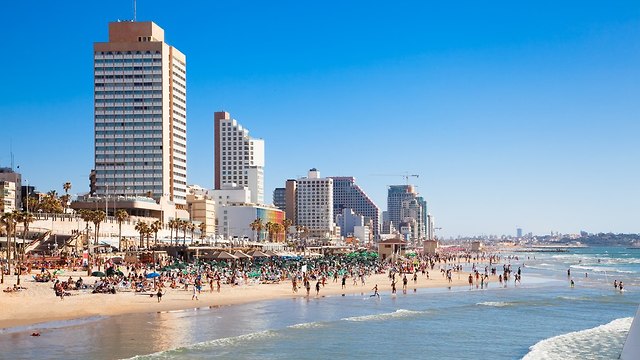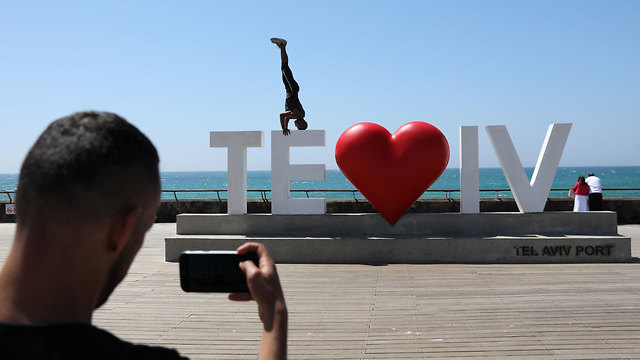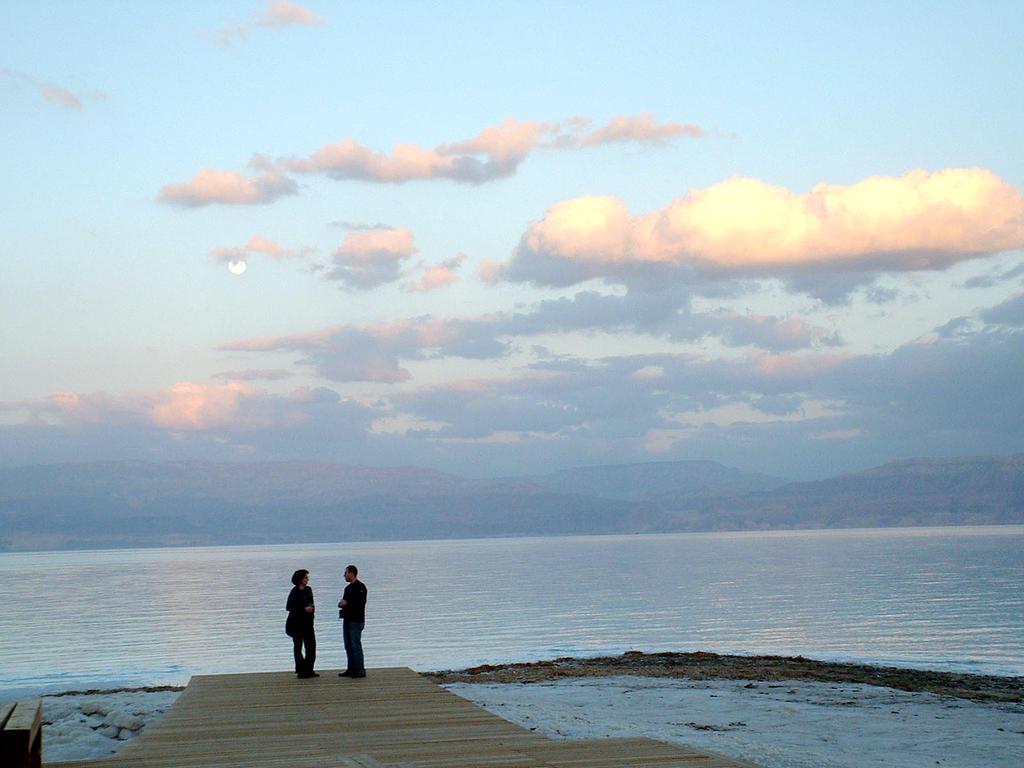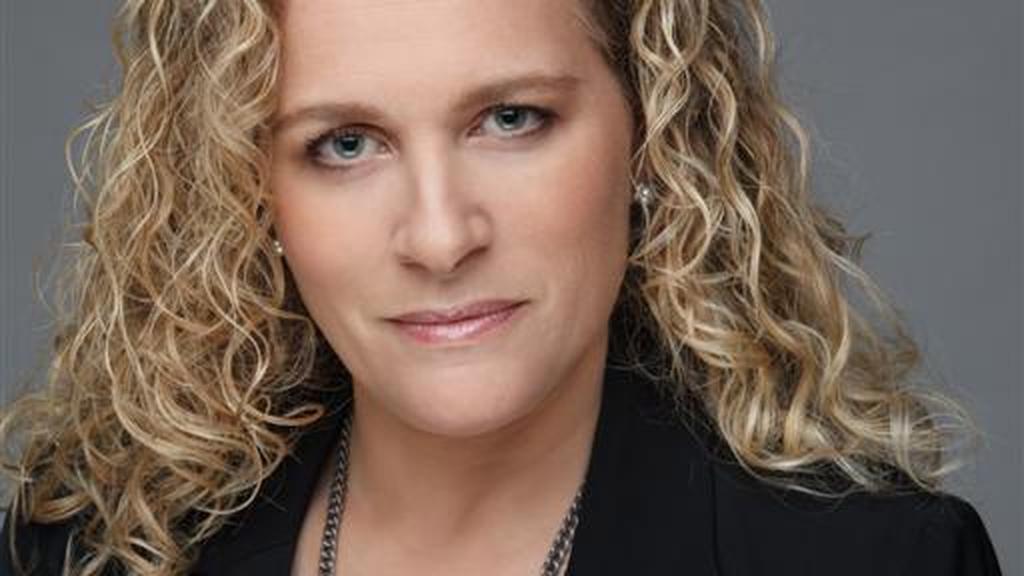Getting your Trinity Audio player ready...
"The world is against us" – that is the narrative that has accompanied advocacy efforts by Israel and its attempt to improve its image on the global stage for decades.
At the same time, many argue that advocating for Israel is fruitless because the misinformation "is driven by age-old preconceptions and deeply ingrained hatred towards Israel and the Jewish people". But is this really the case?
A survey commissioned by the non-profit organization, Vibe Israel, to understand how young people in North America, Europe, South America, and Australia think about the country, reveals surprising findings.
When the 3,710 respondents were asked how well they know Israel, 89% of the 21-40-year-olds answered that they don't know anything about Israel at all, or that their knowledge is limited. Only 11% stated that they know Israel well. Amongst respondents aged 14-20, only 4% claimed to know Israel well.
When asked if they would be willing to visit Israel, 62% answered “Yes”. Amongst those that answered “No”, the main reason for their lack of desire to visit was: “it does not seem like an interesting destination”. Fear from security issues impacted their decision much less when considering whether Israel is an attractive tourism destination.
When asked if they are familiar with the Boycott, Divestment and Sanctions movement (BDS), that is managing a major campaign against Israel, only 18% of those aged 21-40 and just %10 of those aged 14-20 answered “Yes”.
The most interesting part: amongst those that had heard of the movement, 32% claimed that its actions had improved their perceptions of Israel, compared to only 11% whose perceptions of Israel were impacted negatively by the BDS.
When asked what Israel does best, 38% answered: “I don’t know”. Amongst those that did have something to say, the most popular response was “Gastronomy”. The response “Technology and Entrepreneurship” came in only in the sixth place. Start-Up Nation, anyone?
What does this data indicate? Perhaps that the slightly archaic term “Hasbara” (advocacy) needs to be replaced by the more contemporary and innovative terms, “Branding” and “Marketing”.
Or in other words: instead of diplomats touting the overused party line that there’s no partner in the peace process, it would be better to find celebrities who will say: “You’ve never seen anything like the Tel Aviv nightlife”.
“Vibe Israel” is one of those organizations that is doing just that. “We represent an innovative approach to how to improve Israel’s global image”, says Joanna Landau, the organization’s founder, “If until now the government invested mainly in explaining its policies in relation to the conflict, we believe that Israel should be promoted and marketed just like you would a commercial product or brand. We highlight the other “face” of Israel, whether through culture, commerce and industry, or high tech”.
The organization’s flagship project is bringing bloggers, YouTubers and Instagrammers, all aged 40 and under – for an experiential tour of Israel. “Our tours include influencers with very large audiences that are interested in specific professional areas – fashion, music, food and more. For each group, we customize an itinerary that suits their area of interest. To date, we have brought over 250 influencers and generated a billion positive impressions about Israel online. Last year we developed an Israel Brand Narratives Book that we use to train Israelis and the Jewish Diaspora how to tell Israel’s story in the world, including guidelines how to communicate the story effectively to Millennials and Gen Z.”
According to Landau, Israel is missing a huge opportunity here. “We believe that the government’s budget is incorrectly allocated”, she says, “95% of it is dedicated to crisis management and only 5% towards marketing. If in the past the Ministry of Foreign Affairs was in charge, today its budget is extremely limited. Nowadays, it’s the Tourism Ministry that is the one that is marketing Israel, mainly in order to increase the number of tourists visiting the country”.
Recent years have certainly shown a transformation in the way the Tourism Ministry is approaching this subject, and it now allocates an enormous budget to branding Israel. “There is currently no other governmental body that is able to allocate half a billion Shekels out of its budget towards marketing and branding activities”, says Amir Halevi, the Tourism Ministry’s Chief of Staff, “We are active in 15 countries and have hired for this purpose 21 advertising agencies and 12 public relations companies around the world. We have become the engine of Israel’s marketing efforts”.
“Over the years Israel was perceived to be a place that is synonymous with religion, alongside a continuous conflict, that is also related to religion. When I entered office with Minister Yariv Levin, we decided to consider a different approach. Research that we commissioned revealed that we should develop sub-brands such as Tel Aviv and Jerusalem, in contrast to the overarching brand, “Israel”. We marketed Tel Aviv as a non-stop city and a hub of culture and business, and Jerusalem as a culinary center with the rejuvenated Machne Yehuda market at its core. We are implementing marketing and branding activities in a sophisticated and diverse manner, using YouTube, Instagram, advertising on all platforms, billboards, articles, and posts in leading tourism media platforms, and even bringing bloggers and online influencers from abroad in order to give them access to other, new faces of Israel”.
“The next step is to brand the Negev as a desert region that has ideal weather in the winter months, especially for bike riding, festivals and more, and following that to do the same with the Galilee area, that is considered a top destination for pilgrims. All of these efforts also require the right real estate planning and development because our hotels are already in full capacity and the tourism numbers are just going up all the time. Once, we could only dream of two million tourists a year. We have just passed the 4.6 million a year threshold. These are numbers that no one ever imagined we’d see and are turning the tourism industry into an important economic driver for Israel”.
Marketing and branding specific cities are also done at the local level. The most obvious example of this is “Tel Aviv Global”, that is responsible for branding Tel Aviv in the world. “Tel Aviv has for years been one of the world’s most appealing cities in terms of creativity, young people, freedom of expression, tolerance, and acceptance. The brand already existed, our job was just to market it globally”, explains Eytan Schwartz, Head of Tel Aviv Municipality’s Communications and Marketing, and CEO of “Tel Aviv Global” at the municipality for the last four years.
According to him, if ten years ago Tel Aviv was mainly known for its touristic and nightlife offering, in the past decade it has become recognized globally as an economic and start-up hub and appears in global magazines and opinion pieces as an urban model for respect for all people, a place that manifests democracy and freedom and a where the rights of the LGBTQ community are deeply respected and upheld. As part of “Tel Aviv Global’s” efforts, every year the city hosts thousands of international journalists from different areas of interest, that are telling Israel’s story through the prism of Tel Aviv. In 2019 the most prominent event was the Eurovision, which yielded 80,000 articles about the city and its values and exposed Israel to 182 million households and tens of millions of readers around the world. Everyone saw the creative, dynamic and liberal face of the city”.
First published: 19:06, 01.12.20





